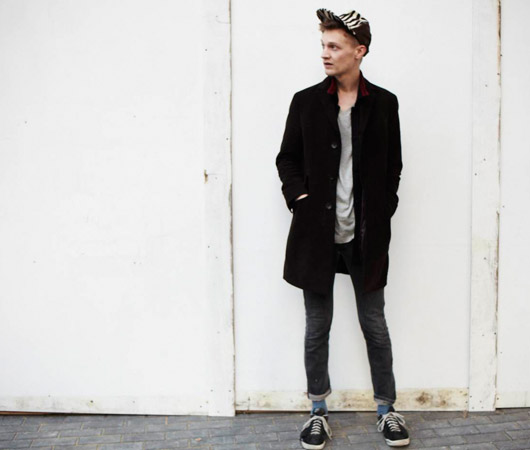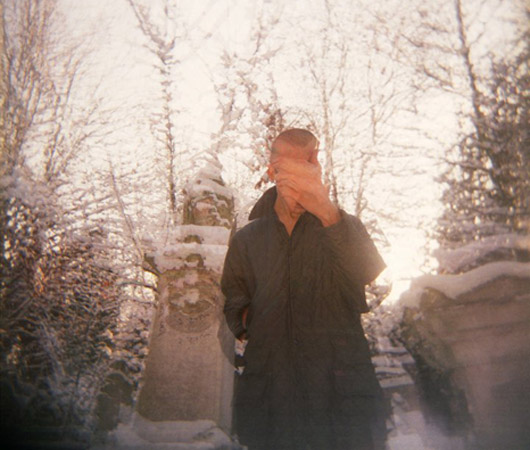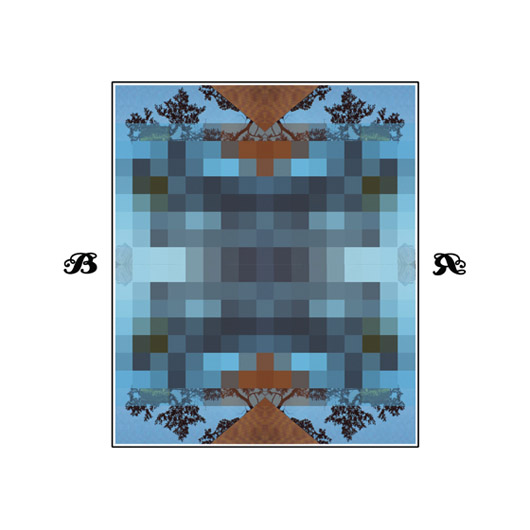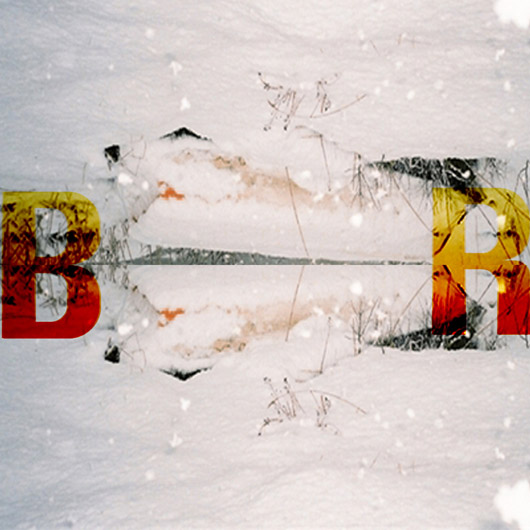Bubblin’ Up: Becoming Real
After originally pursuing more visual-based creative outlets, Toby Ridler (a.k.a. Becoming Real) eventually turned his […]

Bubblin’ Up: Becoming Real
After originally pursuing more visual-based creative outlets, Toby Ridler (a.k.a. Becoming Real) eventually turned his […]

After originally pursuing more visual-based creative outlets, Toby Ridler (a.k.a. Becoming Real) eventually turned his interests to music production. “I started thinking that I could express things through music in a way I couldn’t quite find the right techniques to express through visual arts,” he explains. Towards the end of his time at university—where the man went on to receive a degree in Fine Arts—this change in artistic aims took hold, and since then, Becoming Real has been responsible for a steady stream of EPs and singles, at first existing along the outer fringes of grime before incorporating more influences and expanding his aesthetic range. Ridler’s continued evolution and consistently keen sense for intriguing sonic structures have sent his name rising through the ranks of up-and-coming Londoners, and with a debut full-length in sight, it appears his footing in the ever-growing pool of UK producers is set to only become more solid.
Surprisingly, Ridler’s musical roots don’t lead back to the usual teen envy of being too young for club nights or tales of hours spent alone listening to pirate radio. Instead, Ridler points to American post-punk and art-rock bands such as Sonic Youth, Fugazi, and …And You Will Know Us by the Trail of Dead, in addition to an unconditional admiration for legendary Olympia, Washington imprint K Records as the first wave of music to impact his life. After spending much of his formative years moving all around England and even ending up in Kraków, Poland for a stint with his family, Ridler’s earliest musical projects took the shape of spazzy, punk-influenced bands (which he now refers to affectionately as “pretty appalling”). Later on, Ridler would explore four-track songwriting in a decidedly experimental and haphazard fashion as The Wolf Tracks, which produced a single effort that was, interestly enough, released in the earlier days of Amanda Brown’s Not Not Fun label.

Ultimately, these early forays into music would take a backseat to his studies, and his increasing interest in visual art soaked up much of his creative energy. But somewhere along the line, Ridler’s inclinations to use music for creative means awoke once again, this time taking shape behind a computer screen and with entirely different ends in mind than before. He elaborates, “At first, I was just trying things out and experimenting, seeing how I could manipulate the music and what I could get out of these sounds I had recorded.” From there, Ridler eventually found his early style as Becoming Real, crafting an adventurous, textured take on grime that would mark his prolific output throughout 2010—a run which totalled four releases, with one outing each for the RAMP, Lo Fi Funk,Tough Love, and Not Even imprints. Although each release found Becoming Real moving in slightly different directions, the music displayed moves along the lines of machinist grime at times heavy and dark, as on the Spectre EP for Not Even, or alternately imbued with a sense of post-dubstep mood and melody, as on the “Fast Motion” b/w “Jen’s Clock” 12″ for RAMP. As Ridler tells it, his productions are always bound to be on their way to being something else, hence his pseudonym Becoming Real, “That’s what’s the music’s doing. None of the songs feel like these fully formed, definite articles. They dream of being that, but they’re not. They are always becoming and insisting and trying to be fully formed and 100%, but there’s just something in the way I work—it just sounds like they’re dreaming of being a straight-up grime or techno track.”

Relocating to London’s Limehouse area after university, Ridler seems able to dissect his complicated surroundings with a level of analytic thought that goes much deeper than most of us would care to venture—no doubt a skill honed during his time as a visual artist and fine arts student. Since his first prolific year, Becoming Real’s productions have embraced this hyper-awareness, folding in cross sections of genres such as juke, dubstep, techno, and bass into his work, first on the crisp and sleek “Closer” b/w “Antarctic City” 12″ and even more so on his latest offering, the boldy diverse, seven-track mini-LP, Solar Dreams / Neon Decay. Ridler sites early grime, footwork, and techno as the main threads that hold together his wide production range, adding, “There’s a point where these genres touch, where one peaks and the other one drops. For me, I can string together these connections between the genres.” In truth, it seems like there’s more at play here than just grime, footwork, and techno. Granted, tunes like “Snow Drift Love,” “Equinox,” and “Zoning” do stay true to Ridler’s grime-minded past, but they also garner comparisons to the space-age sounds of fellow UK tunesmiths such as Rustie and even Brackles. The rest of the mini-LP takes vastly different lines—”Lady Lazarus” is propulsive, melodic techno á la Seams; “Anthropology” is dark and considerably subdued in a hazy, textural casing; and “Work Me” and “Slow Memory” tap guest vocalists for the effort’s most unexpected tracks, with Lady Chann adding her rudeness to the gliding, tropical-flavored former while the latter finds Sunless 97‘s Alice supplying layers of gorgeously harmonized vocals to the floating affair. Still, there’s a fluidness that holds it all together, and again, Ridler himself puts it best: “There was an overall sensation, a hallucinogenic, dream-type quality that I was hoping would come out of the mini-album as a whole piece. Really, the album dreams of itself, and wants to be more structured and formulaic, but can’t but to be anything more than a bizarre or traumatic memory of the genres I’ve taken inspiration from.”

Moving forward, Becoming Real’s next focus is working on a full-length record. As it stands, there’s no real conceptual path Ridler is keen to take for the future, although he does mention that his productions are becoming more hardware based, considering, as he puts it, “I think I’ve started reaching the limit of sitting in front of a God-damned computer.” So far, it appears Ridler is happy to keep exploring the unique places where his influences meet, letting one step inform the next as his career continues onward. “The way that I’m creative just isn’t structured, there’s a constant exploration of step after step, and the process is ingrained in every section of the songs.” Rest assured, wherever those steps lead him next, it’s worth following along.

